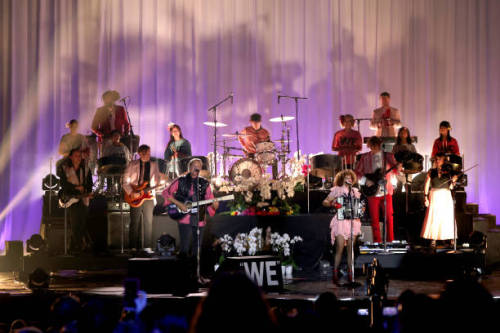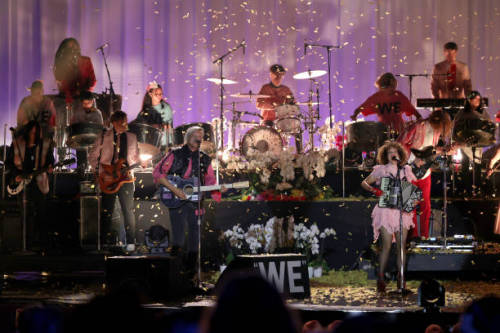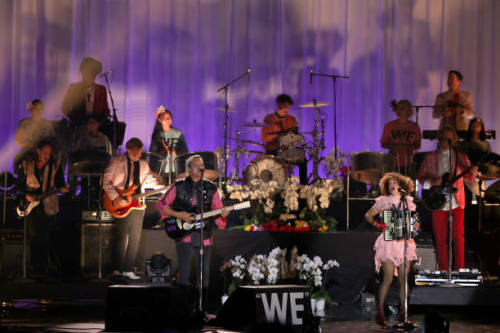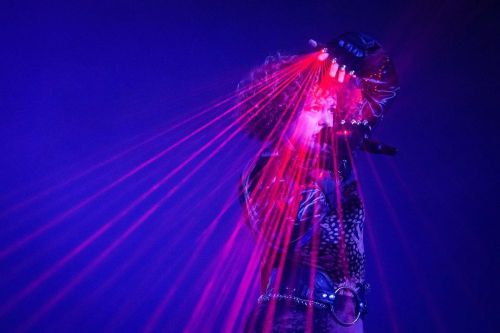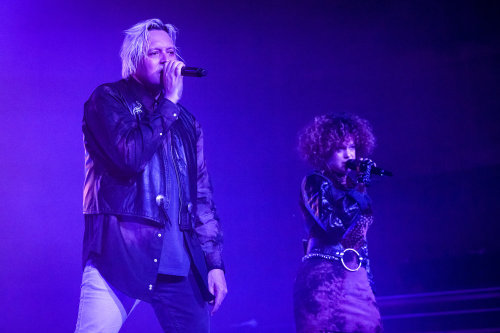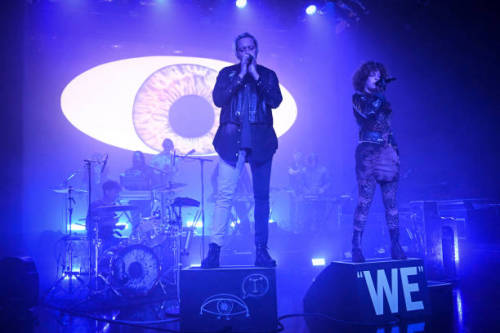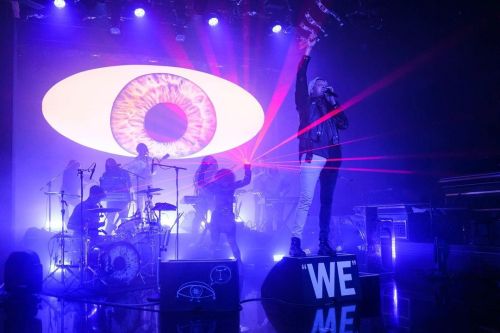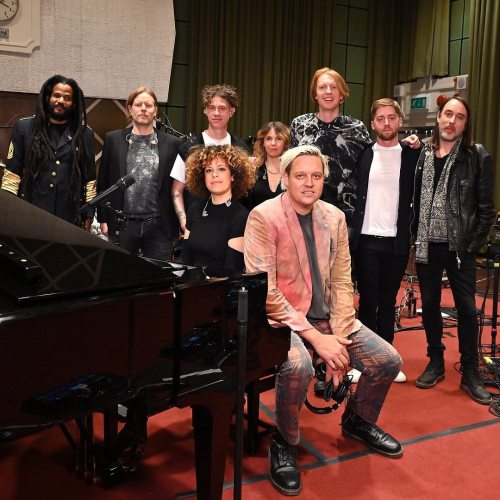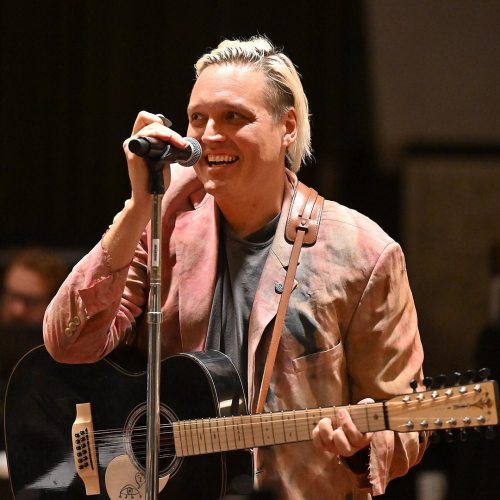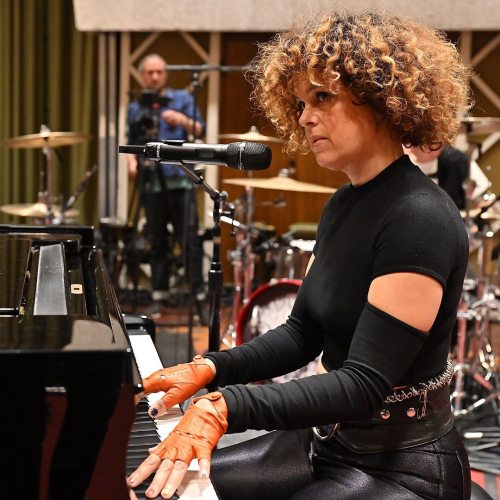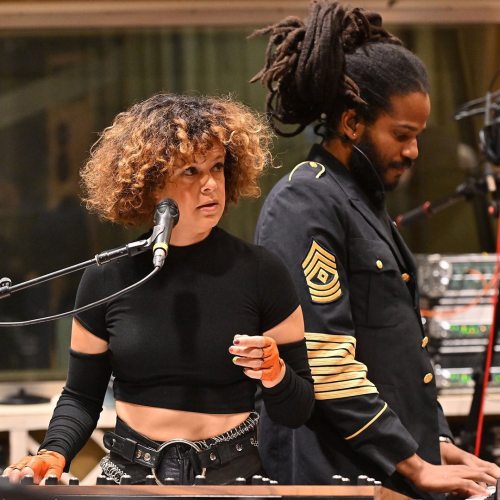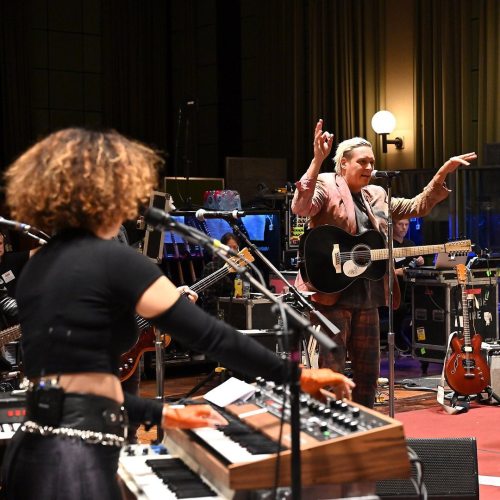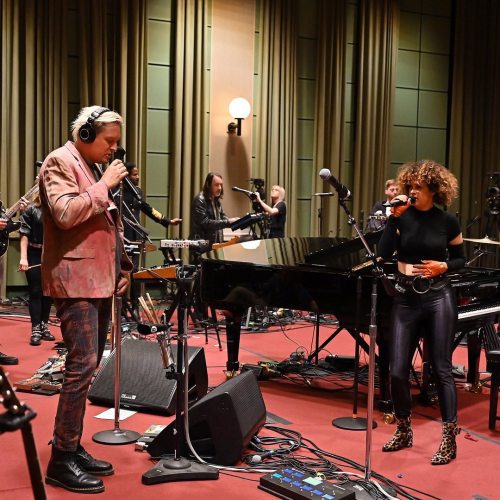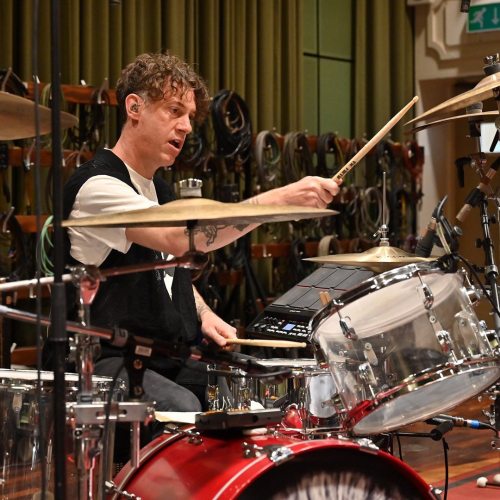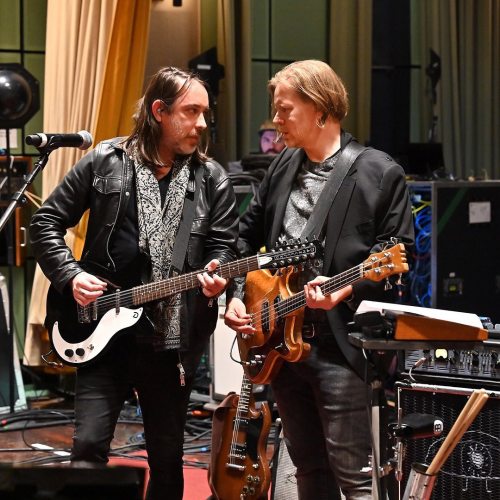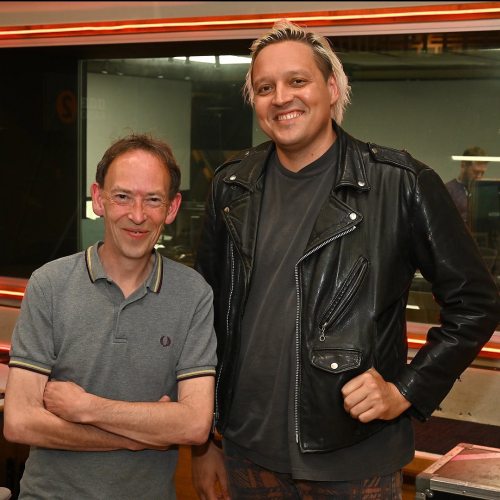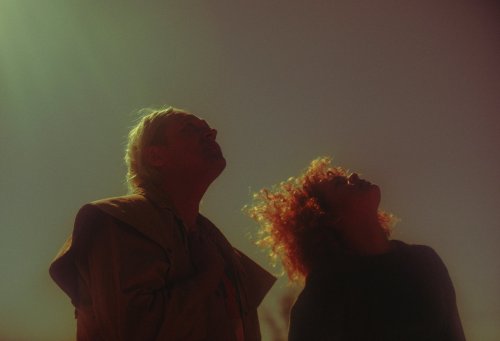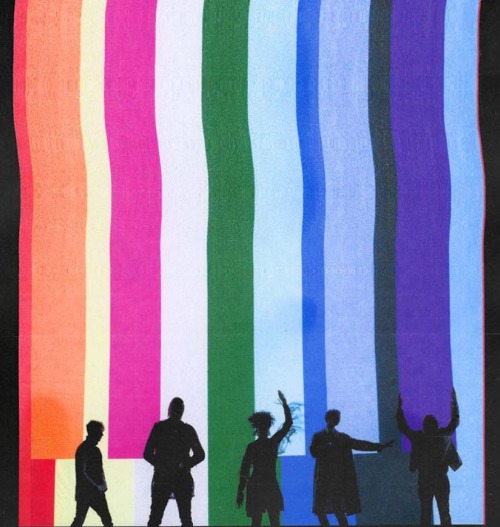#win butler
@djwindows98: Happy Mothers Day and Birthday to my beautiful Momma! You gave me everything I’ve got.
Post link
Win Butler from Arcade Fire Talks SNL Performance, New Album ‘We’, & Upcoming Tour!
Interview with Win Butler on The Stephen McCauley Show
Steve Lamacq interviews Win Butler on BBC6
Arcade Fire reveal inspiration for Lookout Kid
Arcade Fire discuss Ukraine fundraising gigs
Arcade Fire perform “Unconditional I (Lookout Kid)” | Juno Awards 2022
Arcade Fire - End of the Empire IV (Sagittarius A*) & WE (Live From ESO Astronomy Press Conference)
Arcade Fire performance at the Press Conference at ESO on new Milky Way results from the EHT team
(1:14:27)
Arcade Fire - As It Was on Radio 2
Arcade Fire perform their cover of Harry Styles’ ‘As It Was’ for Radio 2 live from the BBC’s legendary Maida Vale Studios.
Arcade Fire’s Session at the Maida Vale Studios
https://www.instagram.com/mark.allan.photos/
Post link
New Orleans’ Mardi Gras was a muted celebration during COVID-19. With the Louisiana city in lockdown, the parades and parties were stifled, leaving the city bereft of its usual colourful character. Into this strangest of days, the central track from the new Arcade Fire album WE was born. “‘End of the Empire (Sagittarius A*)’ was cut on Mardi Gras Day,” explains Win Butler. “It was super surreal because it’s such a spiritually-loaded day, there’s such a mysticism to it.
But the day it wasn’t happening because of COVID, you could hear the birds singing and the air was thick. We were waiting on people coming back to mix stuff but I was like, ‘I don’t fucking care, we need to record this shit right now.’ So we basically cut it live in the living room.”
Such aching isolation and a yearning for something bigger fills much of WE, which Butler is discussing with Rolling Stone across Zoom from his New Orleans studio (he and wife/bandmate Régine Chassagne are now based in the city). He languidly relaxes back in his studio chair, happy to hold court on any number of subjects. Butler is as earnest in conversation as would be expected from the lead singer of Arcade Fire.
Now 42-years-old, and with a nine-year-old son to look out for, he’s well ensconced in parenthood. Things are purportedly good for the musician, as good as things can be after these last few pandemic years. However, Butler is arriving into press for his band’s new album after what could be labelled the only major setback of Arcade Fire’s career to date: WE is the long-awaited follow-up to 2017’s Everything Now, an album that, while definitely not a complete failure, didn’t debut to their usual unanimous acclaim.
Critical reviews for the synth-pop style were tepid and many fans seemed unimpressed by a satirical album rollout that failed to properly connect. In an interview at the time, Butler claimed that the response to Everything Now was “Orwellian”, just another dismaying example of people losing the ability to take a joke. When this quote is regurgitated to Butler now, he doubles down. “Even the idea that it (Everything Now) didn’t go well is wrong. It’s like if you say something enough times then it becomes true.
I did a funny interview the other day and the interviewer was like, ‘So the people really didn’t like Everything Now and no one came to the show.’ I said, ‘did you actually come to our show in Berlin?’ He replied, ‘yes I did, it was a very sold out amazing show.’ I just don’t know!” Butler adds with an exasperated sigh (it should be noted that Everything Now still managed to top charts around the world, including the US and UK).
Think back to the music of your childhood: chances are that a lot of the most formative music came from albums released decades before you were even born. It’s something that Butler seems eager to emphasise. “I don’t think anyone knows if music is good until 20 years after it’s made anyway,” he insists.
He has a pertinent example ready to assist this theory. “I just read the most hilarious Rolling Stone review of Harvest (Neil Young’s now-classic 1972 album). It was basically like, ‘Neil Young has completely lost it, the album is bloated and I wish he’d do what he was doing before.’
Look, I’m not saying Everything Now is Harvest, which is one of my favourite records that anyone’s ever made. The point is none of truly fucking know in the moment because our perspective is so limited. Most of the bands I liked I heard 20 years after they broke up and I received their records in random order. I don’t know what the fuck The Clash were doing in 1978. (How much of this is Butler intellectually protecting himself from future critique is unclear; watching him passionately saying it from his studio, though, you’re inclined to think he means it).
Butler isn’t done there. “I don’t really buy into ‘music as a powerpoint list’, you know? I read a thing the other day that said, ‘I went through The White Album and made a better version of it.’ I was like, ‘who the fuck are you?’ It’s the fucking White Album! It’s one of the greatest things that anyone ever did and it’s also the fucking Beatles.
It’s just such a hilarious idea, like ‘I’ve just got to get my time machine ready and then I’m going to cut “Honey Pie”. If only I could help them!’ I don’t know what the reviews for We were in Russia back then but I’m sure they were not favourable,” he adds with a knowing smile.
Butler is referring to Yvgeny Zamyatin’s dystopian novel written in the early 1920s which Arcade Fire’s album takes its name from. “I studied Russian literature in university and I read the book when I was 18 or 19,” he recalls. “It kept coming back. I thought I would probably do a film of it or something at some point.”
When he started working on this album, though, WE fit thematically as Butler was aiming to find the most meaningful word with the least amount of letters (a rare economical moment from a band whose song names often resemble the languorous titles of contemporary novels).
It’s clear that Butler feels an affinity for Zamyatin. “He was a prophetic writer. 1984 is entirely based on WE, and so is Brave New World. Both of them (George Orwell and Aldous Huxley) read it before writing their books. It was written right as the Russian revolution was happening, an incredibly tumultuous time – the 1920s make the 2020s look super chill!
So as Communism is taking hold, this author was like, ‘hey guys, I just want to flag a couple of issues that I think we should be talking about.’ It really took some balls to say, ‘there’s some major fucking issues that could affect us for the next 10 years.’”
WE is markedly different from Everything Now sonically, with much less eccentric experimentation, but it doesn’t feel like a reactionary move. Arcade Fire’s sixth album is less overwhelmed by thick irony and gluttonous maximalism, a somewhat back-to-basics approach that benefits from an intentionally simplified structure for this record. “We entered into writing it with the guiding principle that any of the songs could be played on piano or guitar, with no other production, and they would still work on the merits of the melody and lyrics and basic instrumentation alone,” Butler explains.
“I think that Régine and I could play everything on this record totally on guitar and it’d still work.” Working with renowned Radiohead producer Nigel Godrich, there is much more negative space than we’re used to witnessing in Arcade Fire songs. In this newfound intimacy, raw displays of emotion are valued; the best classic Arcade Fire songs have always had a closed-eyes, belting-at-the-top-of-your-lung quality to them.
During recording one day, Butler’s young son accidentally knocked some drumsticks to the floor, with the clattering audible in the background. Butler purposefully left the sound in the final version. “When you’re making a record, you’re making a document of a moment,” he says with a meaningful pause. “There’s a song and the melody but there’s also this other intangible thing that you don’t always get.
You always have your antenna up to try and capture these little bits of humanity. So to me, our son dropping something in the background is as much a part of the song as the chords. It’s this little bit of life, this little bit of realism.”
In the songwriting, some schmaltz remains, like the repeated refrain of “I unsubscribe” in “End of the Empire IV”, as does the obsession with the myriad problems of technology, but as the album moves closer to its conclusion, sincerity dominates; talking to Butler, it feels like he needed to do that for himself as much as anyone else.
The album is roughly split into two halves, journeying from suffocating frustration at the state of the world to realising the power of communal transcendence. There’s the Beckettian back-and-forth of “The Lightning I” (“I won’t quit on you / Don’t quit on me / We can make it baby / Please don’t quit on me”) and the Régine-led “Unconditional II (Race and Religion)”, in which they offer a wholesome vision for the future of humanity (“I’ll be yours / You can be mine / Love unites”). WE is far from a pandemic record but the prioritisation on genuine compassion and connection in the album’s second half feels welcome.
This all played out in real time at Coachella last month: performing the heartfelt “Unconditional I (Lookout Kid)”, it soon got too much for Butler who had to cover his face behind his bands as the rest of the band paused momentarily to allow him to collect himself. It was a stark display of raw emotion at one of the biggest festivals in the world, the veil slipping to reveal a welcome shot of pathos. “I don’t know about you but it’s been a hard couple of fucking years,” Butler could be heard shouting to the audience.
For a band with several world tours under their belt, Arcade Fire’s recent absence from Australia has been keenly felt. “It’s been forever,” Butler laments, sincerely adding that they want to “come back soon.” He’s not hopeful about the future of touring though. “It’s just about figuring out how to do it in this new age.
Even from the time we’ve finished this record there’s now a war in Europe. I check my phone thinking ‘today’s the day when the stock market crashes.’ It’s inevitable, it’s going to happen, we’ve just been printing money. It’ll be like, ‘forget my fucking tour, we’ve got bigger issues (laughs).’”
He pauses for a second before adding, “I’ve got a dear friend who got a very bad cancer outcome. Consider that a week before you’re maybe complaining about something and then you find out that you’re really sick. You wish you could be complaining about what you were complaining about a week ago. I think this time (the pandemic) has forced me to be a bit more aware in a lot of ways.” It goes unmentioned, but you feel that he’s also referring to any critical reaction to WE here.
In 2005, David Foster Wallace, a writer preternaturally gifted at predicting the world to come with his words, said this in his Kenyon College commencement speech: “The really important kind of freedom involves attention and awareness and discipline… That is real freedom. That is being educated, and understanding how to think. The alternative is unconsciousness, the default setting, the rat race, the constant gnawing sense of having had, and lost, some infinite thing.”
This understanding of the importance of attention is evidently a deeply-held belief of Butler’s too. “The spectator or listener’s attention is what makes the art,” he says. “The art is their attention. That’s where the art happens. People look at a painting on a wall and see it’s a Rembrandt and so they really look at it.
If you really look at it and you’re connected to the humanity of the brushstrokes of Rembrandt, this human painting on a wall, then you’re connected to the humanity of someone from an entirely different generation. That’s essentially what art is and that’s what music is. If that’s broken, we’re all aloof and only obsessed with ourselves. I’m speaking for myself of course,” he hastily adds at the end of this statement.
It’s why Butler has a clear way he’d like people to receive WE. “My dream for the record is that people have the time to listen to it,” he says slowly. “There’s a lot of songs that I love but the shit that really changed me as a person was always a record. If you can try and get into that headspace of where an artist is coming from in an LP, it’s worthwhile.
I listened to Little Richard’s first record, and I know all the songs, but listening to the full record is to feel what being Little Richard was like. I feel I know him a little better after listening. I learn something about his humanity and by doing that, I’m also more in touch with my own humanity.”
He has another example. “When I first heard The Smiths, it was like the first time I tried pâté and was like ‘yuck!’ Over the course of a summer, though, I just kept listening to them and then I loved The Smiths. There’s so much shit you miss out on if you’re used to hearing things that sound a certain way and don’t let yourself really listen to it. If you watch The Godfather and you’re on your phone the whole time, you’re not going to get it all. You might think Marlon Brando is cool or you’ll like a certain scene but you’ll be missing out on the true emotional hit.”
While acknowledging that this way of listening has almost completely been eradicated in the streaming era, Butler retains a sliver of hope. His face lights up as he discusses his son again. “My son is young but he loves music and he likes really great music too. He listens to classical music, he can listen to punk rock, he can listen to anything. I do have hope, it’s not all doom and gloom. All the stuff is there on the internet, anyone can listen to Bad Brains or find full Clash performances at The Lyceum, and they can experience what a real band sounds like.
You get the sense that, in an ideal world, this is where Butler would like his future to be: somewhere quiet and comfortable with his family, surrounded by a stack of classic records, enclosed from an increasingly turbulent world. “Ideally music can transcend in some way because if even music can’t, we’re kind of fucked, do you know what I mean? I hope it can.
This isn’t even about our records: just go listen to any record, listen to a real record,” he says with a vague gesticulation to the outside world beyond his studio. “You know what a really good album is? The White Album.”
Post link

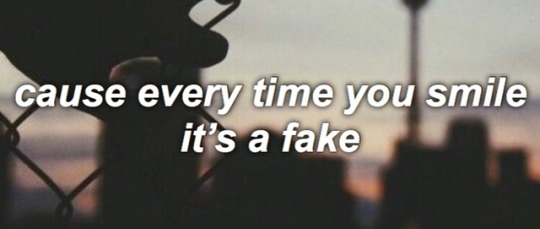
stop pretending you’ve got a everything now
everything now ~ arcade fire
day seventy eight: a song by a band with more than five people in it


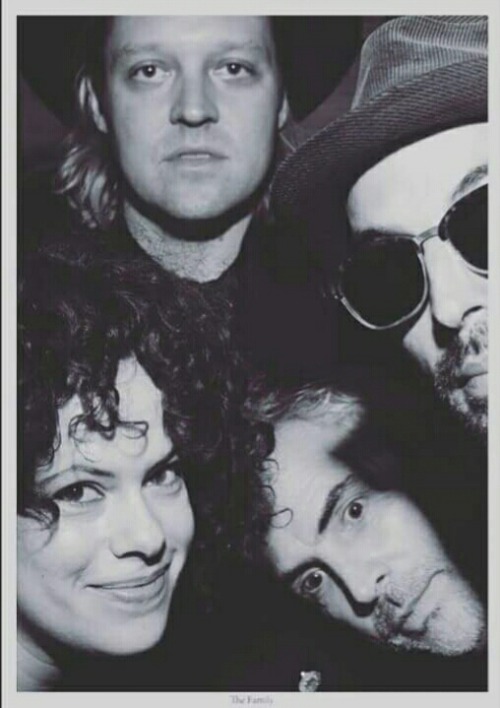


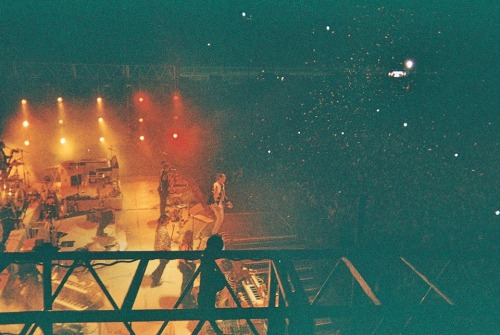
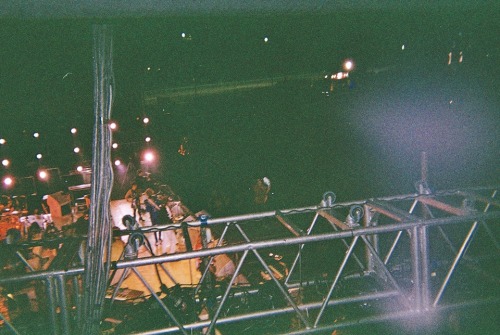
![thekillerssluts:[HQ] First time seeing this pictureI love them with all my heart thekillerssluts:[HQ] First time seeing this pictureI love them with all my heart](https://64.media.tumblr.com/abdfe10958f97c190b78818d16d8cdc9/tumblr_oe2n8bL9wW1r9wp3qo1_500.jpg)


